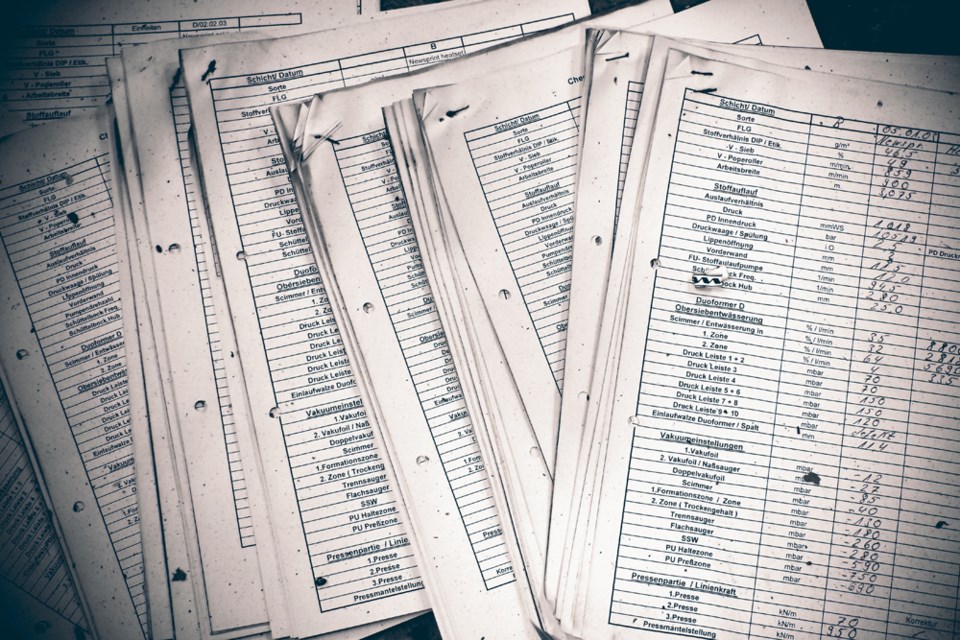The District has created a new bylaw that will allow the corporate officer to make approvals on changes to the record schedule, a document which determines how long the municipality keeps its records, among other things.
This will allow staff to lengthen or shorten a record’s lifespan without amending a bylaw.
In addition, it will also allow staff to add more detail into the schedule and organizational categories into the record schedule without a bylaw amendment.
Previously, a bylaw amendment was required every time the record schedule was changed. Bylaw amendments generally require a three-reading public process.
The District says the intention behind the change is to allow the flexibility for staff to make minor amendments to the schedule without the requirement for a bylaw amendment.
Changes must adhere to legal and legislative requirements, according to the District. As well, changes to the schedule will include the date that the change was implemented, and will be highlighted to make the amendment clear, staff say.
The District says it will make the schedule public.***
District council unanimously approved a bylaw that will change how it manages its records during its May 7 meeting.
Sarah Dicker, the District’s agenda co-ordinator, said these changes were made after looking at best practice standards.
“How do you think this balances the public desire for transparency?” asked Coun. Chris Pettingill.
He also wondered why there’d be a need to destroy electronic records as they wouldn’t be taking up physical space, anyway.
“As a data guy, I bristle a little bit that we would never find value in these old electronic records,” Pettingill said.
“Having an abundance of records makes it hard for staff to search, so when we get FOI [Freedom of Information] requests... from the public, having an abundance of records that may no longer hold value can inhibit the process,” replied Dicker.
“Keeping records for the sake of keeping records is not considered best practice.”
Pettingill also wondered if it was possible to keep summaries of old files, and asked whether very old records were subject to a Freedom of Information, or FOI, requests.
“If the document or record exists, it’s FOI-able,” said Luce Boucher, records management co-ordinator with the District. “If it doesn’t have to exist, you better not have it.”
Boucher noted that items such as council meeting minutes will be kept forever.
Pettingill, like everyone else on council, wound up supporting the new bylaw.
Coun. Eric Andersen asked if there could be future considerations for retaining records for heritage purposes as well. Staff said they’d look into it.
Other changes to record-keeping include the addition of definitions for clarity and a record management system, staff said.
***CORRECTION:
Please note this story previously incorrectly stated that the municipality is changing how long it is keeping its records.
Instead, the District has created a new bylaw that will allow the corporate officer to make approvals on changes to the record schedule, a document which determines how long the municipality keeps its records, among other things.
The sections in bold have replaced passages of the original article to reflect that information.
The Chief regrets the error.




